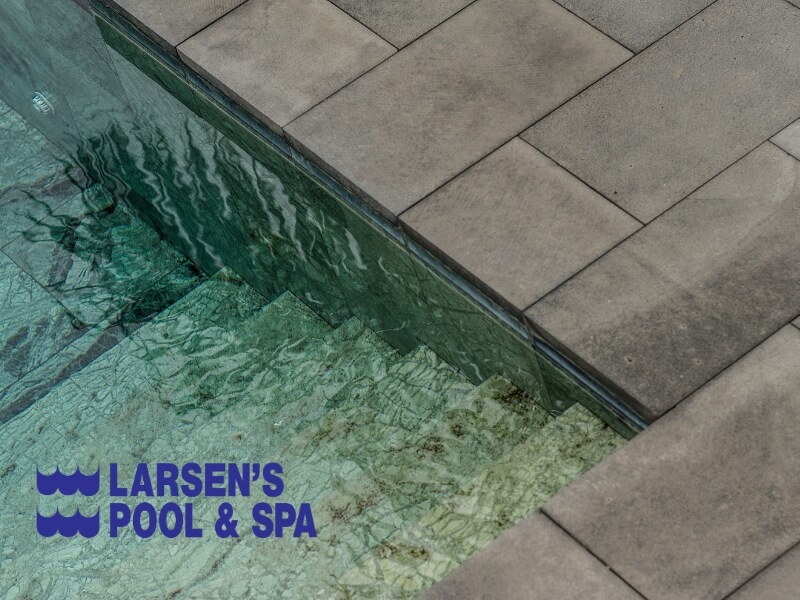Follow these simple tips on how to tell if your swimming pool is leaking.
If you notice a drop in your pool’s water level or suspect a potential leak, it’s important to identify it and take care of the problem. How to tell if your pool is leaking is a common question many homeowners ask. Being aware of the different signs can save you both time and money. Staying proactive by keeping a close watch on your pool can help you identify any potential swimming pool leaks before they get much worse.
Here are some tips on how to tell if your pool is leaking.
Observe Water Loss
Understanding how to tell if your pool is leaking begins with observing water loss. A slight drop in the pool water level may be normal due to evaporation, but a substantial decrease could indicate a leak. Pool contractors and swimming pool builders often advise marking the water level with a water-resistant marker.
After 24 hours, if the water in the pool has fallen more than a quarter of an inch, it’s cause for concern. Regular checks can be beneficial to prevent significant damage in the long run.
The Bucket Test
One method to determine if your pool is losing water is the bucket test. Fill a small bucket with pool water until it’s about five inches from the top. Position the bucket on one of the first couple steps of the pool, making sure it’s submerged at least 5 inches deep.
Mark the water level inside the bucket. Once 24 hours have passed, compare the two marked levels. If you notice the pool’s water level has decreased more than the water inside the bucket, you might have a leak.
Dye Test
Swimming pool leak detection can be streamlined with a dye test. You can pinpoint areas where water might be escaping by using a pool leak detection dye. This test is particularly useful for detecting a pool leak around fixtures or near cracks.
The dye is pulled towards the leak, revealing its exact location. Using the dye test is a precise method that can save you time and make it easier to find a leak.
Inspect the Equipment
Take a careful look at the pool’s equipment, especially the pool pump. Any leaks at the equipment pad can indicate deeper issues that require professional intervention. If you notice any issues, it’s always wise to consult a local pool expert or swimming pool builder for a thorough check. Regular maintenance checks can also ward off larger issues down the line.
Professional Assistance
Swimming pool renovations and pool remodeling specialists have the right tools to detect and fix leaks. If you can’t pinpoint the problem using DIY methods, it’s recommended that you reach out to professionals for assistance. Their experience in the industry can offer peace of mind and help make sure your pool remains in excellent shape.
Each pool type needs unique care. Here are some considerations to remember for different pool types:
Concrete Pool
Cracks can lead to leaks, which is why regular inspections are vital. Even small cracks can evolve into major issues if not addressed quickly.
Salt Water Pool
Consistently monitor the salt level, as any abnormalities in salt water pools could be a telltale sign of a leak. A consistent salt level helps maintain a healthy pool environment.
Vinyl Liner Pool
Tears or punctures in the liner are common culprits. Immediate attention can prevent these from growing and causing further damage.
Contact Professionals for More Tips on How to Tell if a Pool is Leaking
Understanding how to tell if your pool is leaking is a valuable skill for every pool owner. Whether you use a bucket test, dye test, or seek professional help, addressing the issue now can save you headaches down the road.
At Larsen’s Pool & Spa, we specialize in pool design and new pool construction services. Our pool contractors have more than 30 years of experience in the industry. We can answer all of your questions and help you choose a custom swimming pool design to meet your needs.
Reach out to Larsen’s Pool & Spa to learn about our pool financing options!



